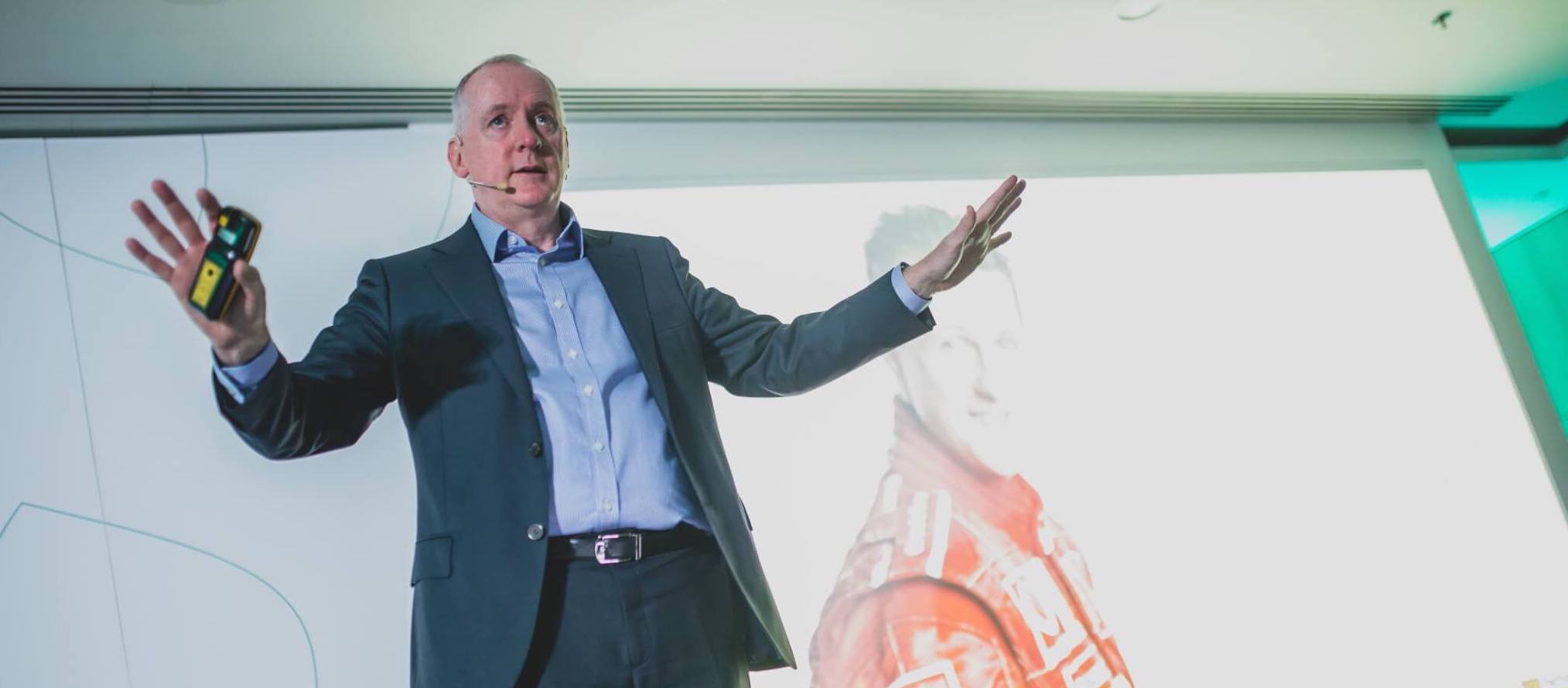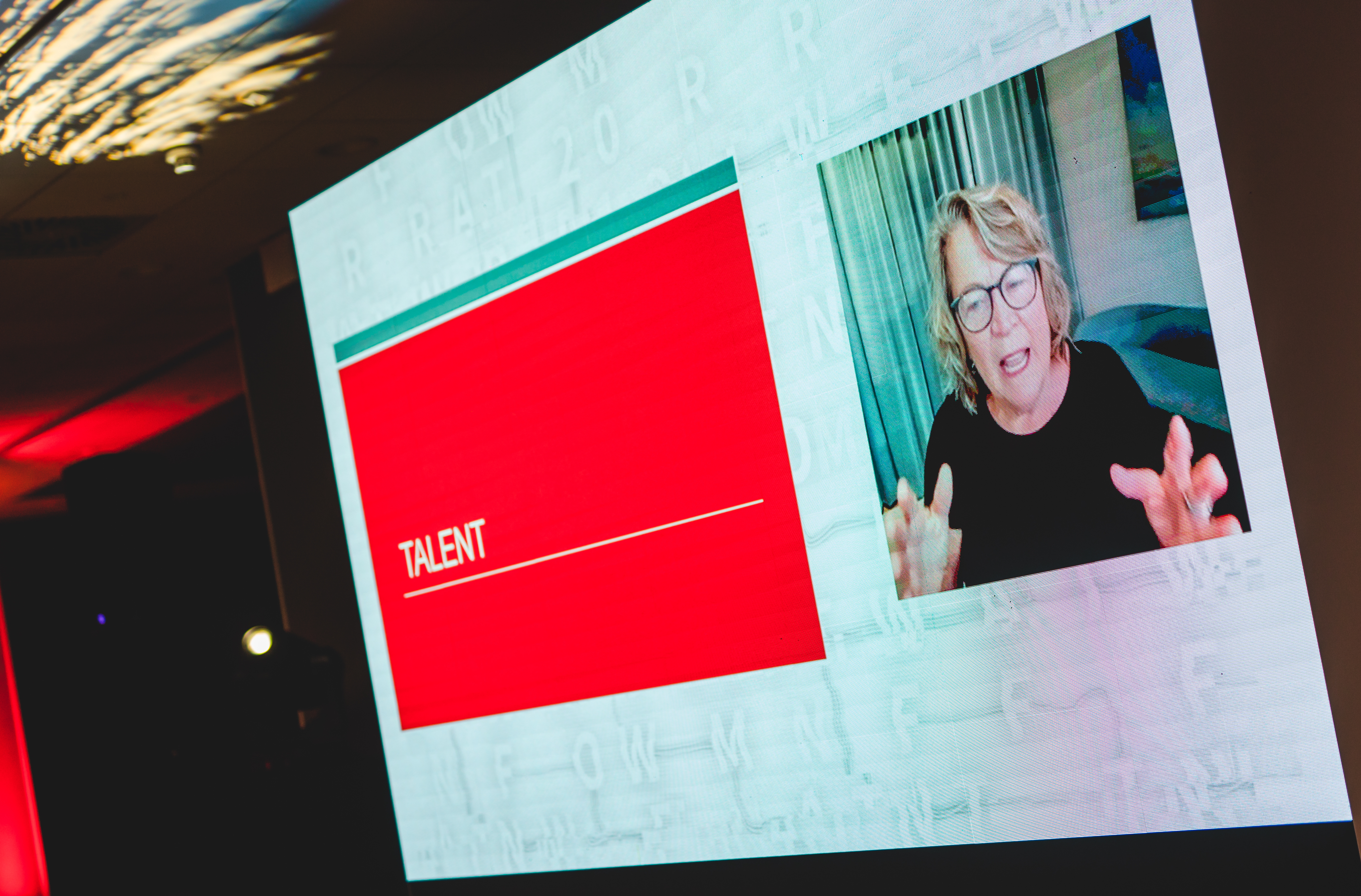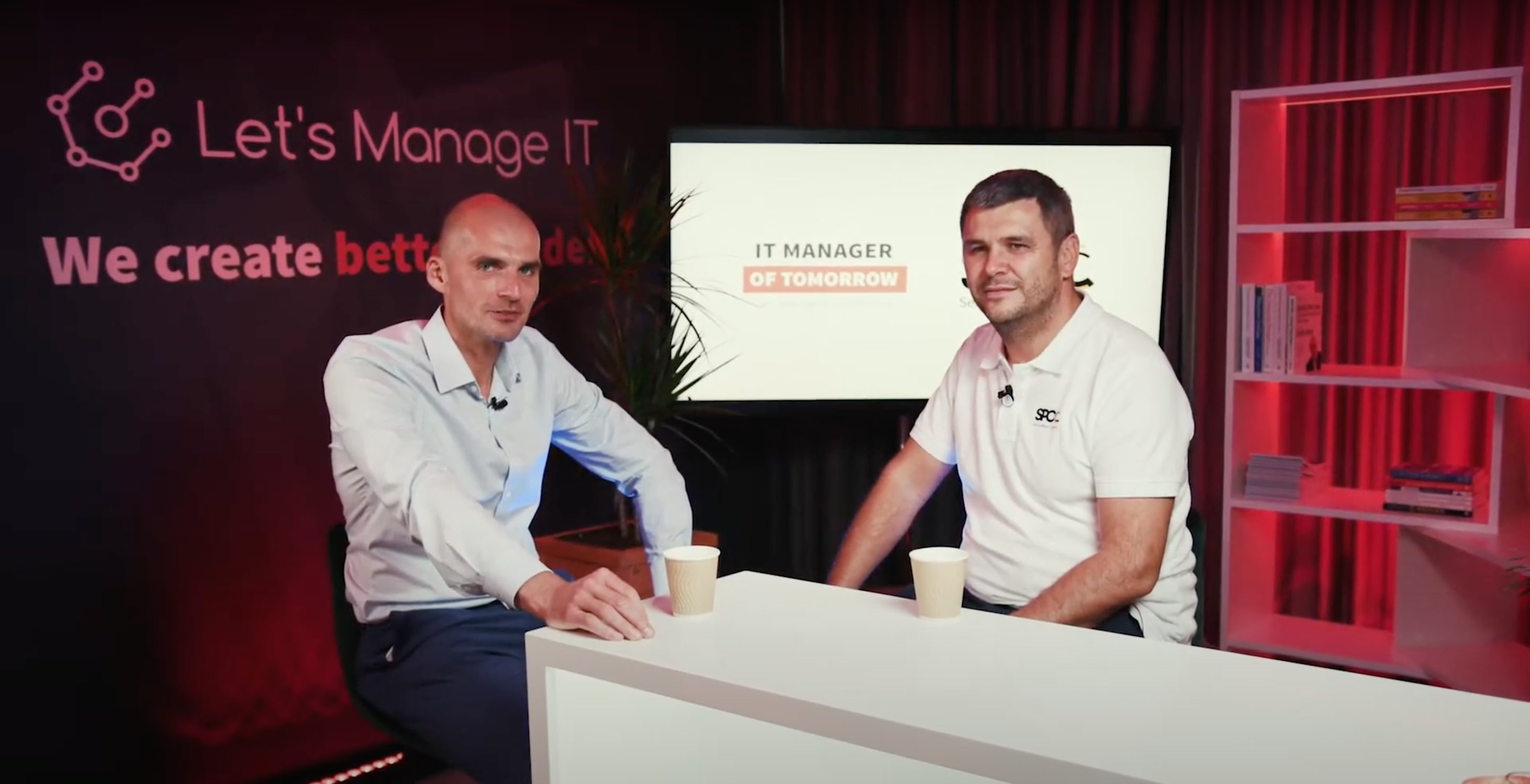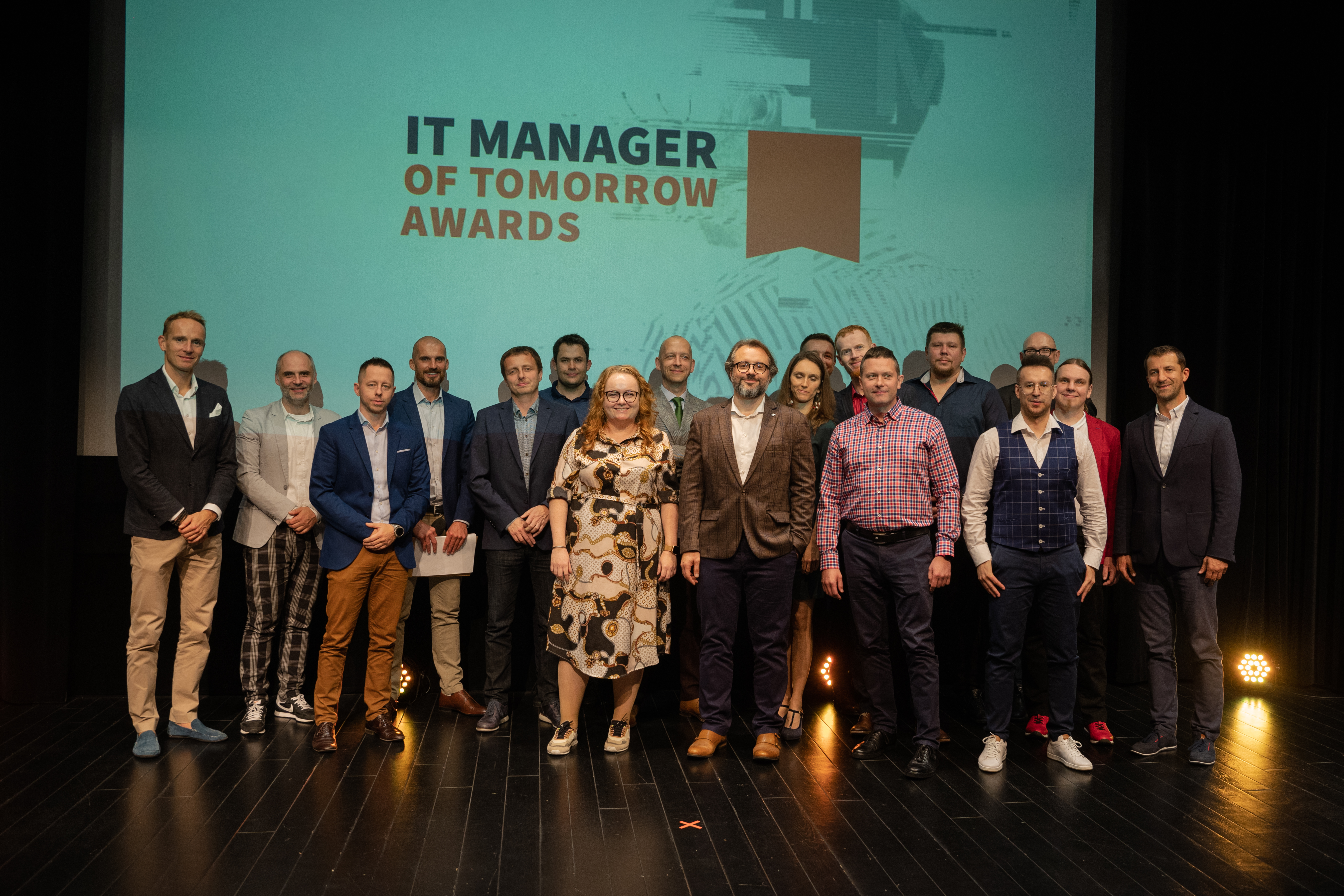Kultura pracy oparta na zaufaniu i szczerości wg Netflix i Patty McCord
Patty McCord współtworzyła w Netflix kulturę pracy opartą o zaufanie i szczerość. Opowiedziała o tym podczas konferencji IT Manager of Tomorrow 2020. czytaj dalej
5 min czytania

Mark Gallagher opened the first edition of OPER8IT conference in Cracow with his keynote speech titled “Data in the Fast Lane”. The event brought together over 200 professionals representing IT operations departments from Poland and Europe.
Let’s start with a quiz. What is the most valuable asset in Formula One? The car? The driver? The technology? None of these actually. The most value is in the data.
Why data is central to F1 operations?
Data enables the generation of a high-quality outcome, and creates opportunity for the business. F1 manages operations in real-time for better quality decision making, to facilitate real-time management, and to improve performance. Mark used the case of Red Bull Racing to show how it disrupted F1 racing by unlocking opportunities to innovate by using data.
As for most companies, the IT operations department supports day-to-day activities and is usually called when someone encounters a problem. F1 puts IT operations at the center of the business. It’s a highly competitive environment, where 10 market players are in harsh competition. IT has revolutionized the way F1 delivers its products, services, and interact with the customers.
F1 is based on the technologies that come from three different sectors: automotive, aerodynamics (material science), and information technology. This is a racing car, an inverted jet fighter that flies on the ground, and a fully connected device at the same time.
Every car is composed of 8,500 components. 300 sensors monitor every aspect of the vehicle real-time: temperature, pressure, flow of fluids, everything action a driver does. 30 engineers monitor all diagnostics, and 8 data analyst are focused only on a car.
Data from past events helps improve future outcome. Race strategy is run on algorithmics, that constantly churning the loads of numbers. It’s like mission control in NASA. As Mark humorously stated: it’s fully remotely monitored device. We don’t have mechanics, we have data scientist.
IT solutions are the lifeblood of everyday operations. Data is stored in the cloud and shared with a team, and constantly accessible. It’s crucial for the operations, while the lead time has been dramatically reduced. Since a need is diagnosed or spotted, it takes four to five days to upgrade a car: design a new part, print it 3D, test it in a wind tunnel, and be ready for a race next weekend. There is no room for downtime, for failure, every team has to meet tight deadlines.
It is a highly demanding business, where everyone is focused on delivering predictable and guaranteed outcomes. - No crashes, no overtaking, no excitement, no blowing up cars - Marc told. This is why data is key to improve risk management, while safety that lies in the heart of Formula One operations. F1 became the expert in analyzing data from previous accidents.
That’s no surprise, that the main biggest challenge to data-driven environment are threats to that data cybersecurity, how data is collected, stored, prevented from criminal. When information is the currency of the business, this approach means very high awareness about data.
Above all, data supports a driver to deliver a better outcome. Why was Michael Schumacher so good at what he did? He was personally obsessed with the data, he checked the data with engineers. He always asked a question to himself: How did I perform, How can I improve, what are my weaknesses?
As F1 conveys high pace business operations, a pit-stop is the perfect example of human performance. 24 ordinary people do something extraordinary. Once a car make a pit-stop, 36 operations task are being performed.
The fastest Formula One pit stop is 1.82 seconds (previous mark of 1.88) and was achieved by Red Bull Racing during the 2019 Brazilian Grand Prix just before OPER8IT took place.
Why is it possible?
Because data are gathered from pit-stops, built up a record to improve training and develop better equipment. - The moment you start data-driven culture, you start to learn about your product, your clients, develop much more outcomes, get deep insights. People are trained, and processes are refined. When you combine IT operations with the human dimension, it brings wonderful outcomes - Marc Gallagher told.
***
Mark Gallagher is a renowned keynote speaker on a range of business topics relating to his experiences gained while working in senior leadership roles within Formula One motor racing over the last 30 years. Since 1998 he runs Performance Insights, working alongside some of the sport’s greatest stars. His management career in Formula One included more than a decade on the management board of the highly successful, race-winning Jordan Grand Prix team, running the world-famous Cosworth engine business and establishing the commercial arm of Red Bull Racing which went on to become 4-times World Champions.
He has worked with many of the sport’s leading drivers, including former World Champions Ayrton Senna, Michael Schumacher, and Jenson Button, as well as David Coulthard, Mika Hakkinen, and Jacques Villeneuve. Mark was a consultant to Disney Pixar on CARS and CARS II.
Kategorie: case study
Zostaw swój email, a będziemy regularnie informować Cię o nowych artykułach.

Patty McCord współtworzyła w Netflix kulturę pracy opartą o zaufanie i szczerość. Opowiedziała o tym podczas konferencji IT Manager of Tomorrow 2020. czytaj dalej

Konrad Grzegory, Agile Center of Expertiese Leader w T-Mobile Polska, podczas finału konkursu IT Manager of Tomorrow Awards opowiedział, jaką drogę on i cała organizacja przeszli w kierunku zwinności i co czeka ich w najbliższych latach. czytaj dalej

Marcin Tyburski, CEO firmy SPOC wspierającej firmy w digitalizacji pracy opowiada o zmianach w ITSM, rewolucji Agile i możliwościach dostępnych narzędzi. czytaj dalej

5 października 2021 w Gdyńskim Centrum Filmowym odbył się finał 4. edycji konkursu IT Manager of Tomorrow Awards. Przeczytaj kto został zwycięzcą. czytaj dalej